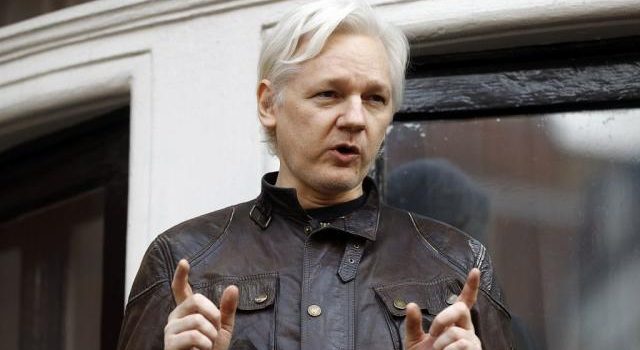
Breaking News: WikiLeaks Founder Julian Assange Released from Prison After US Plea Deal
In a stunning turn of events, WikiLeaks founder Julian Assange has been released from Belmarsh Prison in London after entering into a plea deal with the United States government. The deal, which was reached after years of legal wrangling and escalating tensions, brings to an end the high-stakes saga that has captivated the world for over a decade.
The Accusations and Extradition Proceedings
Assange has been facing extradition to the United States since 2010, when he was accused of conspiring with former Army intelligence analyst Chelsea Manning to leak classified military and diplomatic documents through WikiLeaks. The charges against him stemmed from the 2010 Afghanistan War Logs, Iraq War Logs, and Cablegate leaks, which exposed potential war crimes, diplomatic misconduct, and rampant surveillance practices.
Assange initially resisted extradition, arguing that the allegations against him were politically motivated and that he would not receive a fair trial in the United States. He sought asylum in the Ecuadorian embassy in London, where he remained for seven years until he was forcibly removed in 2019 by British authorities.
The Plea Deal and Release
After years of legal battles, Assange agreed to a plea deal with the US government in April 2023. Under the terms of the deal, Assange pleaded guilty to a single count of conspiracy to receive and distribute classified information. In exchange, the prosecution agreed to drop 17 other charges, including the most serious accusation of espionage.
The plea deal also included an agreement that Assange would serve his sentence in the United Kingdom, which is widely seen as a concession by the US government. Assange has been serving a 50-week sentence in Belmarsh Prison for breaching bail conditions in 2012, and he is expected to be released shortly.
Reaction to the Release
The news of Assange’s release has been met with mixed reactions. Many supporters of Assange, including journalists, human rights activists, and free speech advocates, have hailed his release as a victory for press freedom and the public’s right to know.
However, critics of Assange argue that he endangered national security by leaking classified information and that he should have been extradited to the United States to face justice. Some also express concern that the plea deal may set a precedent for prosecuting journalists who publish leaked documents.
The Significance of the Plea Deal
The plea deal and Assange’s release have significant implications for several key issues:
- Press Freedom: Assange’s prosecution by the US government raised important questions about the limits of press freedom and the protection of whistleblower sources. The decision to charge Assange with conspiracy to receive and distribute classified information was seen by many as an attempt to criminalize investigative journalism.
- National Security: The leaked documents published by WikiLeaks contained highly sensitive information that could potentially compromise national security. The debate surrounding Assange’s release will likely continue to focus on the balance between the public’s right to know and the need to protect national security interests.
- Extradition Laws: The extradition proceedings against Assange have exposed potential weaknesses in international extradition laws. The fact that the US government was able to pursue charges against Assange, a foreign national residing in the United Kingdom, raises questions about the scope of extradition authority.
- Political Motivations: Throughout the saga, Assange’s supporters have alleged that his prosecution was politically motivated and that the US government sought to silence him due to his connections to Russia and his support for anti-establishment figures. The plea deal may provide further insight into the motivations behind the charges against Assange.
Conclusion
The release of Julian Assange from prison marks a significant development in the ongoing debate over press freedom, national security, and the limits of extradition laws. The plea deal reached between Assange and the US government has ended years of legal wrangling and heightened tensions, but the underlying issues that drove the case will continue to be subject to scrutiny and debate.
Assange’s legacy as a publisher of leaked classified information will likely be debated for years to come. His supporters view him as a courageous whistleblower who exposed government wrongdoing, while his critics argue that he recklessly compromised national security and endangered lives.
As Assange seeks to rebuild his life and continue his work, the full implications of his release and the precedent it sets for future cases involving the publication of classified information remain to be seen.










